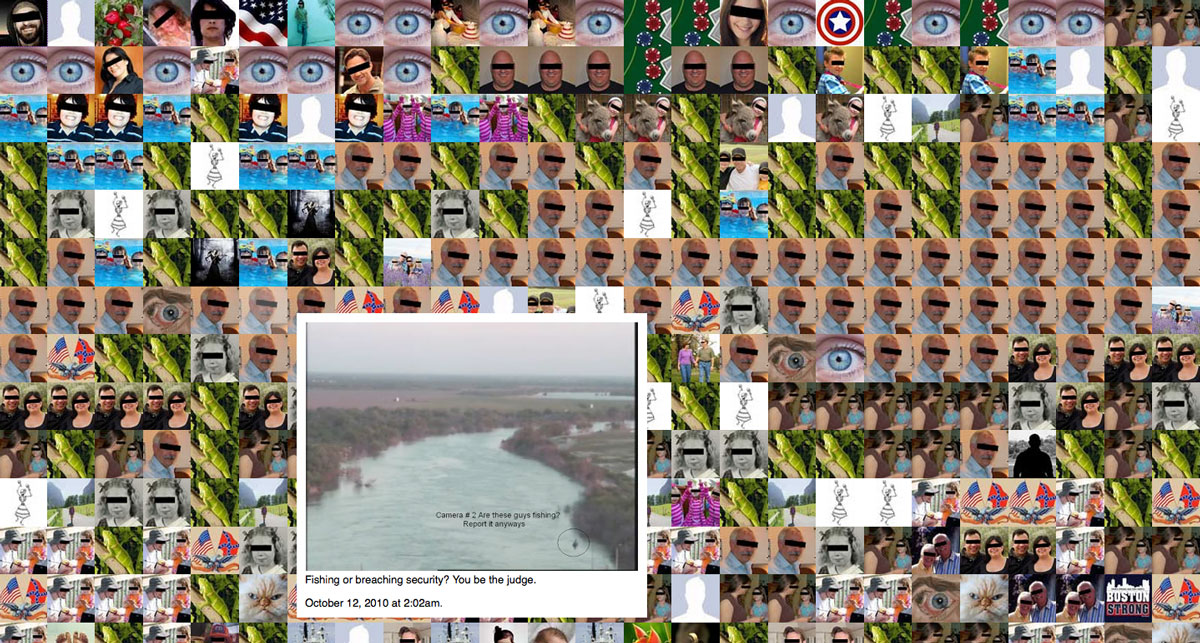Joana Moll & Cedric Parizot
The Virtual Watchers
Interactive installation, 2016
Virtual Watchers is an on-going research project at the intersection of art, research and technology that questions the dynamics of crowdsourcing at contemporary State borders. It focuses on the exchanges that occurred within a Facebook group that will be called here the RedServants, in order to protect there anonymity. This group gathered American citizens that volunteered to monitor US-Mexico border through an online platform that displayed live screenings of CCTV cameras. The declared aim of this operation was to bring American citizens to participate in reducing border crime and block the entrance of illegal immigration to the US. This artwork offers an interactive window that allows the public to dive into the conversations, jokes, and questionings of the RedServants. By doing so, it highlights to what extent the emotional investment and exchanges of these people work as an essential mechanism in the construction and legitimization of a post-panoptic system. Second, it underscores the dyfunctionning of this system of surveillance that fail to provide an efficient tool for monitoring border trespassing.
Joana Moll is an artist and researcher based in Barcelona. Her work critically explores the way post-capitalist narratives affect the alphabetization of machines, humans and ecosystems. Her main research topics include communication technologies and CO2 emissions, virtual civil surveillance and language. She has presented her work in several museums, festivals, universities and publications around the world. Furthermore, she is a member of the transdisciplinary research project Antiatlas des Frontières and co-founder of The Institute for the Advancement of Popular Automatisms. She is a visiting lecturer at Vic School of Art and a lecturer at VIT Lab in Vic (Barcelona). Her full resume is available at http://www.janavirgin.com.
Cédric Parizot is a researcher in anthropology at the Institute of Research and Studies of the Arab and Muslim Worlds, (CNRS/Aix Marseille University). His research focus on mobility and bordering mechanisms in the Israeli-Palestinian spaces. Since 2011, he is the coordinator of the antiAtlas of Borders He sees the integration of artistic practices and digital technologies into its ethnographic research as a way to reappraise critically his own practices of modelization of knowledge.
Technical Development: Ramin Soleymani
Freelancing software developer and media artist. Worked in computer science research for a while, before starting to dive into open education and the hacking culture of Berlin. Is convinced that the ivory tower of science will crush if you just drill long enough at the very same spot with your little finger.
